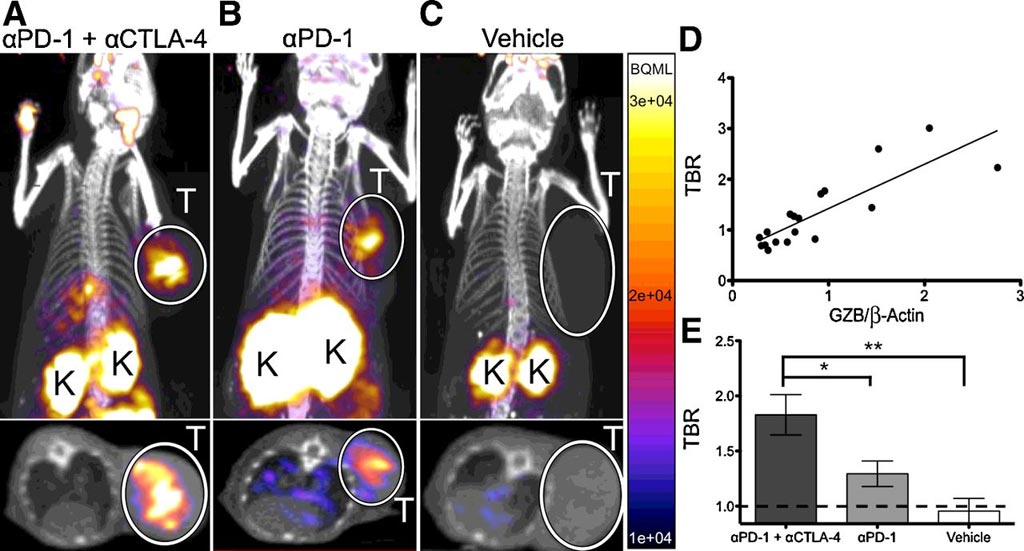PET Technique Predicts Early Immunotherapy Response
By MedImaging International staff writers
Posted on 09 May 2017
Researchers have demonstrated a new PET imaging technique, which can find tumors that respond to immune checkpoint inhibitors, by measuring the activity of an immune cell protein.Posted on 09 May 2017
The new technique can measure the protein granzyme B that immune cells release when they kill cancer cells, enabling the researchers to find those tumors that responded to immune checkpoint inhibitors in the early stages of treatment. Immunotherapies treatments do not work in most patients, and could instead be treated using other therapies, and be spared the increased risk of side effects.

Image: A new non-invasive PET imaging technique can help clinicians predict immunotherapy response earlier (Photo courtesy of AACR Journals).
The research was published online on April 30, 2017, in the journal Cancer Research by researchers from the Harvard Medical School, and the Massachusetts General Hospital.
The researchers first designed a probe that binds to granzyme B, and attached it to a radioactive atom. They then imaged the entire body using Positron Emission Tomography (PET) scanning to find where immune cells were actively releasing granzyme B. The results showed that a high PET signal correlated with a positive response to therapy, and tumors that subsequently regressed.
Research author, professor of radiology Umar Mahmood, MD, PhD at Harvard Medical School, said, "The ability to differentiate early in the course of treatment patients who are likely to benefit from immunotherapy from those who will not, can greatly improve individual patient care and help accelerate the development of new therapies. In our study, we found a marker that was highly predictive of response to immunotherapy at a very early time after starting treatment, and we were able to design an imaging probe to detect this marker and accurately predict response noninvasively. Further, therapeutics that achieve high levels of granzyme B release can be advanced faster and those leading to low granzyme B release can be altered or eliminated."














